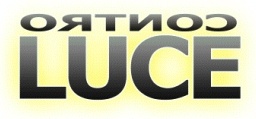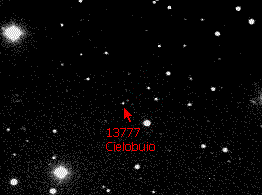This paper was published as: Dorian BOZICEVIC, Svjetlosno zagađenje – ekološki problem iz teološke perspective, in Spectrum No. 1-2/2002., Glas Koncila, Zagreb, 2002. Manny people, mostly those who live in cities have never had the possibility to see the Milky Way and in some cities even the stars. The reality of not being able to see the stars is just one of the repercussions that follow the problem of light pollution. The main characteristic of light pollution is that it is caused by any unnecessary or inefficient emission of light into the space out of the zone (square, street, …) that should be enlightened. This problem is usually caused by use of non-ecological lighting fixtures that are mostly poorly mounted.
Now days, light pollution has become one of the biggest enemies of astronomy without talking about all the safety, ecology, biology, psychology, moral and ethical issues that this subject pulls behind itself. In this short text, I will try to give some theological fundaments for a theological-ecological tractate about this problem.
Genesis 1-3
On the first pages of the Bible, in the book of Genesis we find a sentence that allows us to give fundaments to a theological speech about ecology: “And the LORD God took the man, and put him into the garden of Eden to dress it and to keep it.” . This sentence from the Bible has a special meaning because in it we find the description of Gods gifts to man (to take and put him into the garden) and Gods demands toward man (to dress it and keep it). For the analysis of the problem that I am talking about, the notion “to keep it” in Hebrew “shamar” is very relevant. At this point is very important to notice that even at that the biblical writer, the old Semit, sees that it is a need to protect (to keep) the earth. From this we can deduct a theological-ecological tractate.
I won’t try to give fundaments to some ecological theology nor try to give fundaments to ecology on a theological basis. I will just try to think about the problem of light pollution from a theological pint of view trough the texts in the Holy Scripture.
In the book of Genesis we find a report about the creation of the Sun, stars and the Moon: “And God said, Let there be lights in the firmament of the heaven to divide the day from the night; and let them be for signs, and for seasons, and for days, and years; And let them be for lights in the firmament of the heaven to give light upon the earth: and it was so. And God made two great lights; the greater light to rule the day, and the lesser light to rule the night: he made the stars also. And God set them in the firmament of the heaven to give light upon the earth, And to rule over the day and over the night, and to divide the light from the darkness: and God saw that it was good.” .
In this text from the first report of creation we see that the biblical writer notices things in nature and those are the existence of the Sun, Moon and the stars as lights in the sky but we also clearly can see that he concisely speaks about the difference between the night and day. We can clearly see that the biblical writer is completely conscious about the order that God puts into the cosmos, conscious about the order that knows the difference between night and day, light and darkness.
As we know, man in his essence is a being that is mostly active during daytime but we also know that with all the technological progress, man is often active during the night and from this we see the need of artificial light. The need of artificial light is not only a question of man’s night activity but also a question of security, which is not only physical but even psychological. From this we should firstly understand that I do not mean to say that we should remove all artificial light, what I am trying to say is that we should mount it in the right way so it does not disrupt the elementary order in nature as we see it described on the first pages of the Bible. All being on this planet needs the clear difference between night and day, light and darkness because it is an important element of our global ecosystem. We should try to imagine the consequences on nature and not only nature but also human life itself if it would always be day, when night would not exist. I think that it is time to seriously question ourselves which animal species would survive, how many people would have sleep disorder and other biorhythm disorders, how would this be harmful to all life on earth?
Practical theology – The question of the message
We have seen some of the consequences that come from the reality of the existence of light pollution thought trough the texts of the Holy Scripture. I think that is needed to think about another reality and that is the question of artificial light on our churches. Our churches are often badly or better to say over-enlightened. Coming to this conclusion, I have a need to ask myself what is the message that we send to the world whit all that artificial light, all that brightness, all that glare? The notion of light in theology as we know it is the description of the essence of good and the notion of darkness is the essence of evil but we must not forget that excessive light, glare, is included in the notion of evil too.
I will return to the first pages of the Bible to the known story about the tower of Babel (Gen 11,1-9) that speaks about the same wish, urge, that is the main point of the original sin and that is: “To try to be God.” or “To try to have, get, reach, be like God.”. Men had this idea from the beginning and from the biblical texts, we know to what that idea leads to. Appling this reality to the idea of artificial light on our churches, we should ask ourselves about the message that we send to the world. The question is, do we want to send a message that says: “We are building towers of Babel made of light.” or we want to send a message: “We are praying and watching over you.”, by applying good and not too excessive lighting. I ask myself does anybody think about how does this completely external thing affect a believer or even better someone who does not believe at all?
I leave this question open to everybody and I hope all will try to answer this question by themselves and when you do reach the answer, try to do something to make things better.
Dorian Bozicevic
(President of the Astronomical Society “Leo Brenner” and student of the fifth year of catholic theology on the University of Zagreb)





